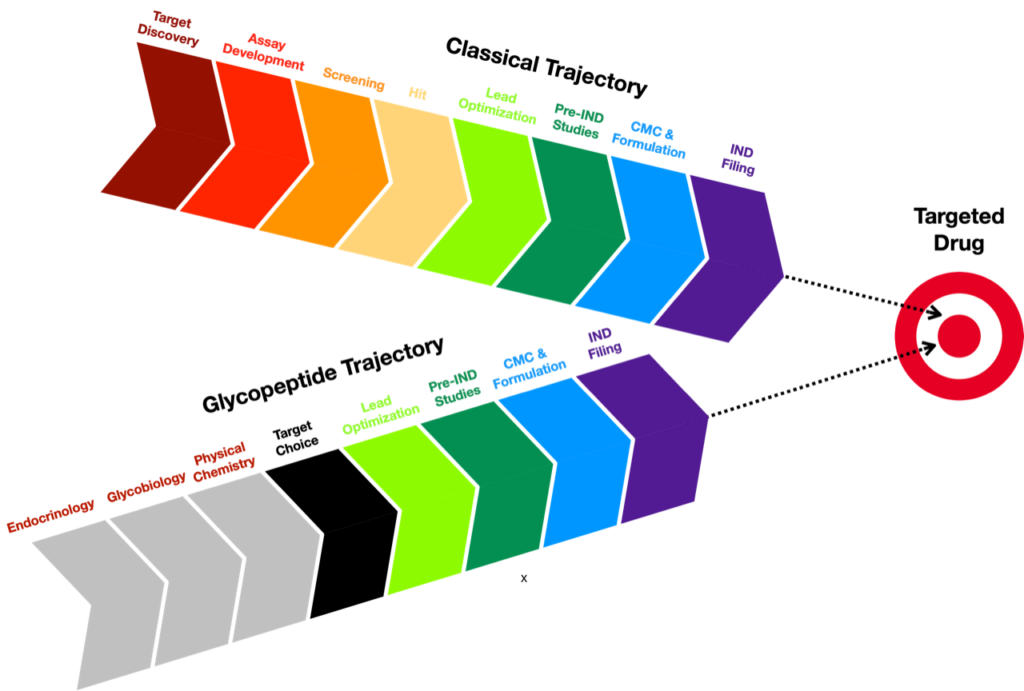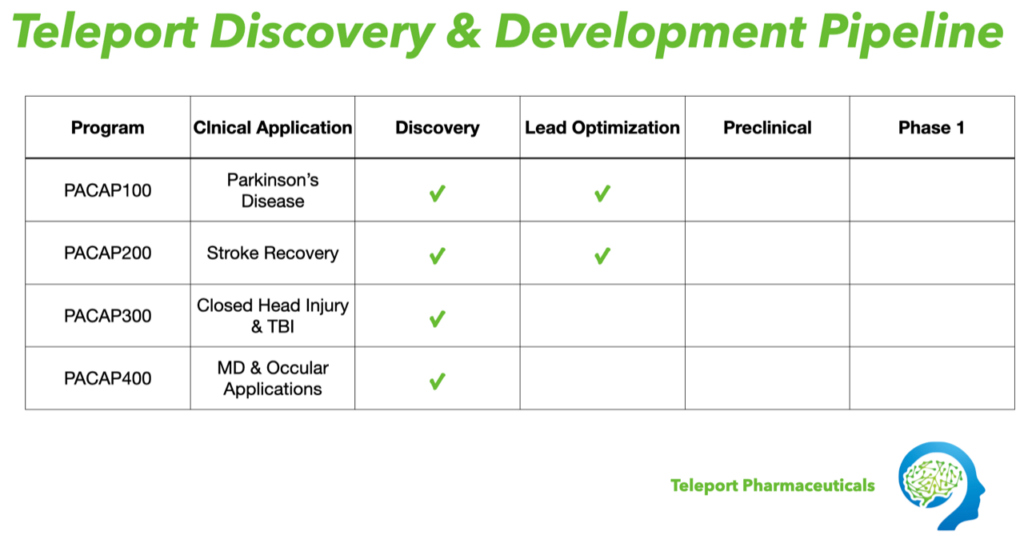Teleport Pharmaceuticals’ Shorter Pipeline for Drug Development
Studies done in the Polt Lab and in the labs of his collaborators have shown that peptides produced in the human brain can become a new source of drugs. Normally, peptide neurotransmitters are produced within the brain, and are “shared” only with adjacent cells.
By attaching a sugar to these peptides (small proteins), this group of scientists have shown that glycopeptide analogues of neurotransmitters will rapidly distribute throughout the body, and will cross into the brain where they can have effects on the central nervous system (CNS). Early studies were supported by the Office of Naval Research and were focused on glycosylated endorphins and enkephalins for pain, and were very successful.

New work, supported by the National Institute for Neurological Disorders and Stroke, is focused on the treatment of Parkinson’s Disease, Alzheimer’s Disease, traumatic brain injury (TBI), migraine and stroke. These more recent studies have been done in collaboration with scientists at the Arizona Health Sciences Center, and use a class of peptides called “secretins.” Three of these scientists have formed Teleport Pharmaceuticals in order to exploit the glycosylation technology.
